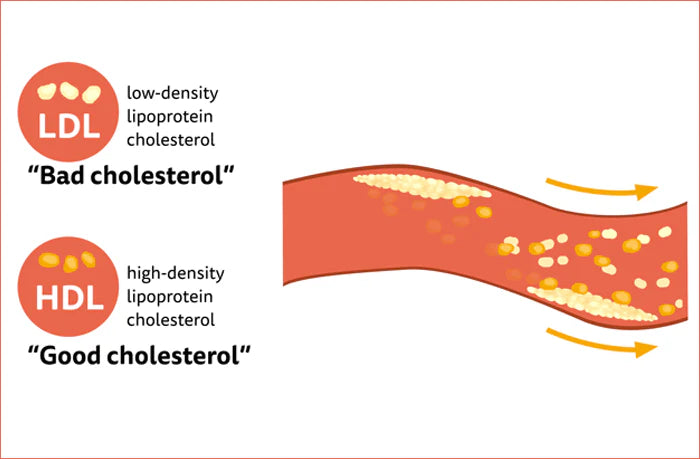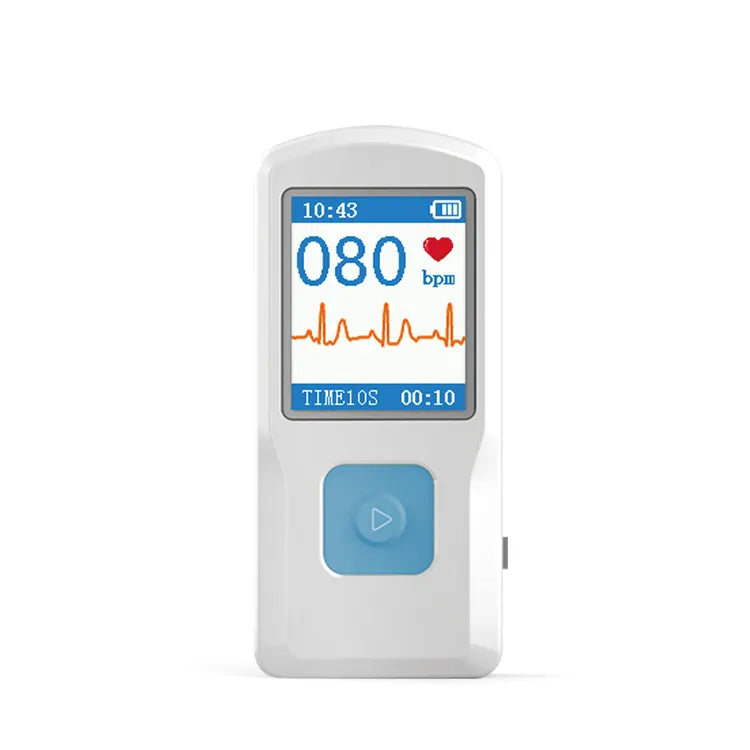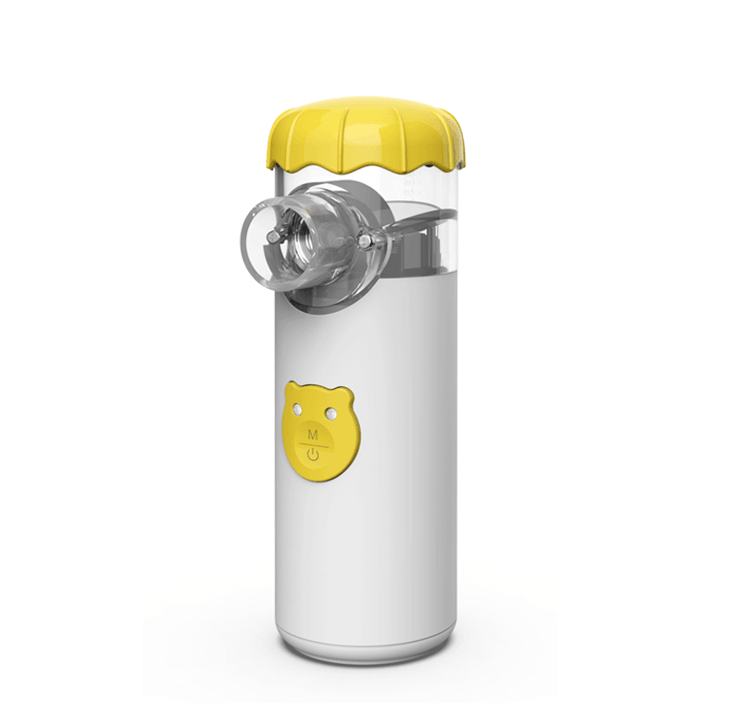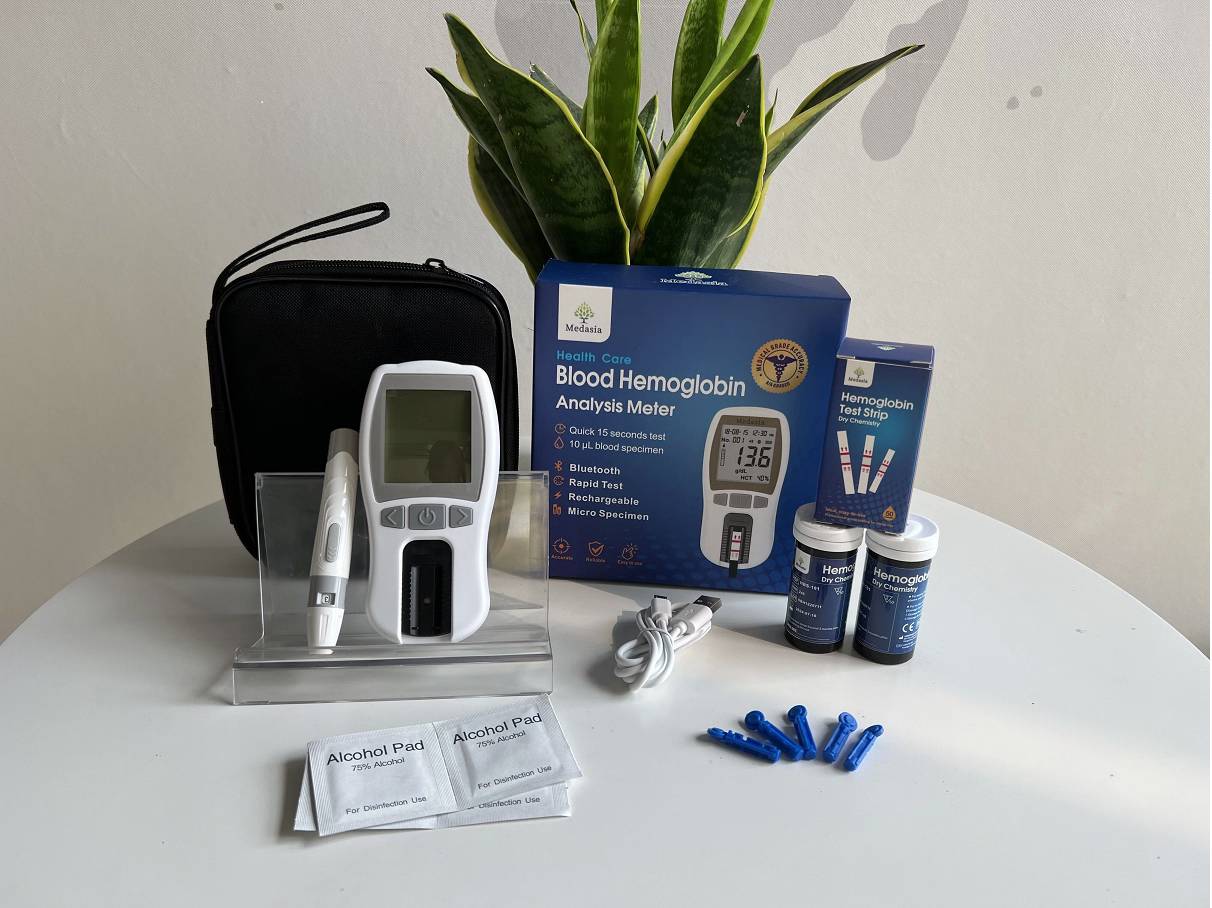The Essential Cholesterol Meter: Pathway to Heart Health


Cholesterol diease affect both the developed and developing world
High cholesterol remains a significant global health concern, contributing to approximately 4.4 million deaths each year. It serves as a prominent risk factor for heart disease and stroke in both high- and low-income countries. Individuals with elevated cholesterol levels face heightened risks of developing heart disease and stroke, with around a third of ischaemic heart disease cases worldwide attributable to high cholesterol.
Overall, raised cholesterol is estimated to be responsible for 2.6 million deaths, accounting for 4.5% of all fatalities, and contributing to 29.7 million disability-adjusted life years (DALYs), equivalent to 2% of the total burden of disease. The prevalence of raised total cholesterol among adults was observed to be 39% globally in 2008, with 37% for males and 40% for females.
It is evident that elevated cholesterol poses a significant health burden in both developed and developing regions, profoundly impacting the incidence of ischemic heart disease and stroke. Addressing and managing cholesterol levels remain crucial in reducing the overall burden of cardiovascular disease worldwide.
What is cholesterol?
Cholesterol is a waxy, fat-like substance that's found in all the cells in your body. Your liver makes cholesterol, and it is also in some foods, such as meat and dairy products. Your body needs some cholesterol to work properly. But if you have too much cholesterol in your blood, you have a higher risk of coronary artery disease.
The topic of this article
In modern society, the prevalence of cholesterol-related diseases, particularly heart disease and stroke, is becoming increasingly alarming. To address this pressing issue and safeguard lives and well-being, this article aims to introduce our four advanced cholesterol meters. By emphasizing the importance of cholesterol testing, we seek to empower individuals to proactively manage their health and mitigate the risks associated with elevated cholesterol levels.
The company of Medasia
Medasia is dedicated to fostering global accessibility to healthcare by empowering individuals through self-care. Our ambition is to ensure that people worldwide have the means and knowledge to take control of their well-being.
Medasia, driven by innovation, specializes in self-tests for various medical conditions. We provide products that empower individuals to proactively manage their health conveniently and independently. Take the first step towards a healthier future with us.
For more information, visit www.medasiagroup.com

HDL, LDL cholesterol and triglycerides
Cholesterol is carried through your blood attached to proteins. This combination of proteins and cholesterol is called a lipoprotein. There are different types of cholesterol, based on what the lipoprotein carries: low-density lipoprotein (LDL) and high-density lipoprotein (HDL):
LDL is sometimes called bad cholesterol because it can build up inside our arteries, causing them to harden and narrow (a process called atherosclerosis) and limiting blood flow. This can ultimately lead to a heart attack or stroke.
HDL is often referred to as “good” cholesterol, because it carries unnecessary cholesterol away from our arteries and back to our liver, where it’s broken down and eliminated from the body. A healthy level of HDL cholesterol can protect against heart attack and stroke.
A third component, known as triglycerides, also plays a role in our cholesterol health. They are the most common type of fat in our bodies, and they store excess energy, or fat, from our diet. Being overweight, eating a lot of fatty and sugary foods or drinking too much alcohol may lead to raised blood triglyceride levels. Triglyceride levels may be high despite relatively normal levels of good cholesterol and non-HDL cholesterol.
High cholesterol is also in itself a risk factor for serious health conditions. If left untreated, it can lead to atherosclerosis. This, in turn, may lead to heart disease, stroke, and other vascular diseases. The higher the LDL, the higher the risk.
What causes of high cholesterol?
High cholesterol can be inherited, but it’s often the result of unhealthy lifestyle choices:
Unhealthy diet: A diet high in saturated fat (found, for example, in animal products) and trans fats (found in various industrially processed foods) can lead to an increase in cholesterol levels. Excess sugar and starch intake contributes to high triglycerides.
Physical inactivity: Being physically inactive can have a detrimental effect on non-HDL cholesterol levels. regular physical activity as been shown to have a beneficial impact by reducing non-HDL cholesterol concentrations.
Smoking: Cigarette smoking damages the walls of the blood vessels, making them more likely to accumulate fatty deposits. Smokers are 2-4 times more likely to develop heart disease than non-smokers. Conversely, smoking cessation typically leads to an increase in HDL cholesterol levels.
Obesity: The typical dyslipidaemia of obesity consists of increased triglycerides, decreased HDL cholesterol with HDL dysfunction, and normal or slightly increased non-HDL cholesterol.
Diabetes: High blood sugar reflects in part greater insulin insensitivity which contributes to higher levels of very low-density lipoprotein (VLDL) production by the liver and in turn lower HDL cholesterol. High blood sugars from Diabetes may also directly damage the lining of the blood vessels.
Heredity: The quantity of cholesterol produced by the body is partly genetically determined. Familial hypercholesterolemia (FH) leads to high cholesterol and, if untreated, to early heart attacks and heart disease. Each child of an individual with FH has a 50% chance of inheriting the disorder. There are many genes that impact cholesterol levels by small increments; having a lot of these genes that raise cholesterol is also not healthy. Therefore, screening parents, siblings, and children of a person diagnosed with FH to find others who may have inherited the genes is essential.
Age: Growing older constitutes a risk factor, as metabolism changes as with advancing age and may predispose individuals to dyslipidemia. For instance, with advancing age, the liver becomes less able to remove cholesterol containing lipoproteins. Furthermore, age reflects years of exposure to undesirable factors. The earlier one reduces this, the better one is able to age in a healthy fashion.
Gender: High cholesterol affects both men and women. However, oestrogen, a female hormone, raises HDL cholesterol levels, partially explaining the lower risk of CVD observed in pre-menopausal women. Conversely, LDL-cholesterol rises after menopause, which again increases the risk in post-menopausal women.
High cholesterol is also in itself a risk factor for serious health conditions. If left untreated, it can lead to atherosclerosis. This, in turn, may lead to heart disease, stroke, and other vascular diseases. The higher the LDL, the higher the risk.
Cholesterol numbers based on age and gender
Anyone age 19 or younger:

Men/Woman age 20 or older

When and how often you should get a cholesterol test depends on your age, risk factors, and family history. The general recommendations are:
For people who are age 19 or younger:
- The first test should be between ages 9 to 11
- Children should have the test again every 5 years
- Some children may have this test starting at age 2 if there is a family history of high blood cholesterol, heart attack, or stroke
For people who are age 20 or older:
- Younger adults should have the test every 5 years
- Men ages 45 to 65 and women ages 55 to 65 should have it every 1 to 2 years
For people who already take medicine:
It is recommended to recheck the blood lipid after 4 to 8 weeks of medication. If the blood lipid reaches the standard, the blood lipid should be rechecked every six months to one year. If the blood lipid is not up to the standard, the blood lipid should be rechecked every 3 months, if the continuous treatment for 6 months, the blood lipid is still not up to the standard , The treatment regimen should be adjusted.
The application scope for using a cholesterol meter

Cholesterol meters have a wide application scope across various organizations involved in healthcare, research, and diagnostics. Here's how they are used in different settings:
1.Hospitals: Cholesterol meters are extensively used in hospitals for rapid and accurate lipid profile measurements. They are employed in various departments, including cardiology, endocrinology, and general medicine, to assess patients' cholesterol levels and overall cardiovascular health.
2.Research Institutes: Research institutes often use cholesterol meters to conduct studies related to lipid metabolism, cardiovascular diseases, and other medical research areas. These devices aid researchers in collecting data for clinical trials, epidemiological studies, and lipid-related research projects.
3.Ministry of Health (MOH): Cholesterol meters play a significant role in public health initiatives undertaken by the MOH. They are used for mass screening programs to assess the prevalence of hyperlipidemia and related risk factors in the population.
4.Clinics: Cholesterol meters are commonly found in medical clinics and primary care centers. They facilitate quick and efficient lipid testing for routine health check-ups, as well as for assessing cardiovascular risk factors and guiding treatment decisions.
5.Pharmacies: Some pharmacies offer point-of-care lipid testing services using cholesterol meters. This allows customers to monitor their lipid levels and helps pharmacists provide counseling on lifestyle modifications and potential treatments.
6.Lipid Testing Centers: Specialized centers dedicated to lipid testing and management utilize cholesterol meters extensively. These centers offer comprehensive lipid profile assessments, and cholesterol meters are essential tools in their diagnostic and monitoring processes.
7.Physical Examination Centers: Cholesterol meters are commonly used in physical examination centers to assess individuals' lipid profiles as part of their overall health assessment. This information can help identify individuals at risk of cardiovascular diseases and guide preventive measures.
Cholesterol meters have a valuable application scope for individuals in various healthcare professions, helping them in their specific roles and improving patient care. Here's how each professional can benefit from using a cholesterol meter:
1.General Practitioner (GP): GPs can use cholesterol meters to assess a patient's lipid profile during routine health check-ups or when investigating cardiovascular risk factors. This aids in early detection of abnormal cholesterol levels and provides an opportunity for preventive measures and lifestyle interventions.
2.Cardiologist: For cardiologists, cholesterol meters are indispensable tools in managing patients with cardiovascular diseases. Regular lipid profile assessments help in monitoring treatment effectiveness and guiding medication adjustments.
3.Ophthalmologist: Cholesterol meters can be relevant for ophthalmologists when assessing patients with ocular manifestations of dyslipidemia or lipid-related eye conditions. Lipid imbalances may contribute to certain retinal disorders.
4.Cholesterol Specialist: As specialists in lipid disorders, these professionals rely on cholesterol meters as essential tools for diagnosing dyslipidemia, monitoring lipid levels, and guiding lipid management strategies for patients at high cardiovascular risk.
5.Nurse: Nurses can use cholesterol meters to perform lipid profile tests, providing valuable information during patient assessments and health screenings. Regular monitoring allows nurses to track patients' lipid levels and support their overall care.
6.Dietitian: Cholesterol meters can aid dietitians in assessing patients' lipid profiles and monitoring changes in response to dietary interventions. This data helps dietitians tailor personalized nutrition plans to manage lipid levels effectively.
7.Endocrinologist: For endocrinologists, cholesterol meters can provide insights into lipid abnormalities often associated with endocrine disorders. Regular lipid profile assessments are essential in managing patients with conditions such as diabetes or thyroid disorders.
8.Pharmacist: In certain healthcare settings, pharmacists may perform point-of-care lipid tests using cholesterol meters. This allows for quick lipid assessments and provides an opportunity for pharmacists to offer counseling on medication adherence and lifestyle changes.
9.Cholesterol Educator: Cholesterol meters are valuable tools for cholesterol educators, enabling them to perform lipid profile tests during educational sessions. This helps assess the effectiveness of education and lifestyle interventions in managing lipid levels.
Key considerations for selecting cholesterol meter
①Ultra Portable Mission Ultra Cholesterol
PROS
✅Test for total cholesterol
✅Portable
✅Easy-to-use
✅Fast and reliable results
✅accurate and convenient
✅Tiny blood sample
⭐Test:Testing for total cholesterol.
⭐Portable: The device is designed to be lightweight and easy to carry around, making it convenient for use in various settings, including home, clinics, or even during travel.
⭐Easy to use: The product likely comes with user-friendly instructions, allowing individuals to perform cholesterol measurements without requiring extensive medical knowledge or training.
⭐Fast and reliable results: The device is expected to provide quick results as little as 15 seconds, which is particularly beneficial for immediate assessment and monitoring of cholesterol levels.
⭐Accurate: Accurate measurements are crucial for proper health assessment and treatment decisions. If the product is reliable and provides precise readings, it can be an essential tool for healthcare professionals and individuals alike. Ultra Portable Mission Ultra Cholesterol with wide CHOL measurement range of 100-450 mg/dl or 2.6-11.7 mmol/L. It has 2 year test strip shelf life.
⭐Convenient: The combination of portability, ease of use, and quick results contributes to the overall convenience of the product, making it accessible and useful in various situations. Long battery life up to 1000 tests.
⭐Tiny blood sample: Small blood sample size of just 4 microliters (4μl). This feature makes it one of the most convenient and least intrusive cholesterol testing options available. With such a tiny blood sample requirement, users experience minimal discomfort during the testing process. Additionally, this small sample size is especially beneficial for individuals with concerns about needles or those with limited blood volume.

②Rapid Lipid Mission Cholesterol Meter
PROS
✅Testing for TC, HDL, TG
✅Portable handheld
✅Large, easy-to-read LCD
✅Fast results within in 2 minutes
✅Clinically proven accuracy
✅Stores up to 200 results
⭐3-in-1 functions: Testing for TC(Total Cholesterol), HDL(High-Density Lipoprotein), TG(Triglyceride).
⭐Portable and Handheld: With its compact and lightweight design, this cholesterol meter is highly portable and can be easily carried anywhere, allowing users to track their cholesterol levels conveniently on the go.
⭐Large, Easy-to-Read LCD: The meter features a spacious LCD display that ensures clear and easy-to-read results. This user-friendly interface makes it simple for individuals of all ages to interpret their cholesterol measurements accurately.
⭐Fast Results within 2 Minutes: Time is of the essence when it comes to health assessments. This cholesterol meter delivers rapid results within just 2 minutes, providing users with quick feedback for prompt health management.
⭐Clinically Proven Accuracy: The accuracy of cholesterol measurements is critical for effective healthcare decisions. The Rapid Lipid Mission Cholesterol Meter is clinically proven to provide precise readings, offering confidence and reliability to both users and healthcare professionals.
⭐Stores up to 200 Results: Keeping track of cholesterol trends is essential for monitoring one's health progress. This meter has ample storage capacity, allowing it to store up to 200 previous measurements, enabling users to track their cholesterol levels over time.
⭐Tiny blood sample: Small blood sample size of just 10 microliters (10μl) for individuals test. 35 microliters (35μl) for 3-in-1 lipid panel test. This feature makes it one of the most convenient and least intrusive cholesterol testing options available. With such a tiny blood sample requirement, users experience minimal discomfort during the testing process. Additionally, this small sample size is especially beneficial for individuals with concerns about needles or those with limited blood volume.
③Advanced Professional Cholesterol Meter
PROS
✅Function for testing TC, HDL,TG,LDL
✅Fast measuring time
✅Easy-to-read large LCD
✅Accurate
✅Convenient
⭐Multiple test: Can test for TC(Total Cholesterol), HDL(High-Density Lipoprotein), TG(Triglyceride), LDL(Low Density Lipoprotein Cholesterol).
⭐Tiny Blood Sample: With its advanced technology, this cholesterol meter requires only a tiny blood sample, making the testing process more comfortable and less invasive for users.
⭐Fast Measuring Time: Time is of the essence, and this meter delivers rapid results of TC, HDL, TG within 120 seconds, ensuring that users receive cholesterol readings quickly and efficiently.
⭐Easy-to-Read Large LCD: The meter features a large, user-friendly LCD display that presents cholesterol measurements with clarity and ease. Users can interpret the results effortlessly, even without any specialized medical knowledge.
⭐Accurate: Precise results equivalent to automatichematology analyzers. Wide measurement range :TC: 2.59mmol/L-12.93mmol/LHDL:0.39mmol/L-2.59mmol/LTG: 0.51mmol/L-7.34mmol/L
⭐Convenient: Only 35 uL or 10uL capillary or venousblood required. Single-use dry strips allow forconvenient shipping and storageMemory stores up to 500.
④Professional Lipid Profile Test "Cholesterol Meter"
PROS
✅Function for testing TC, HDL,TG,LDL
✅Rapid results within 2 minutes
✅Easy-to-read with large LCD
✅Transfer date to your phone or pc by bluetooth
✅Rechargeable battery
⭐Multiple test: Can test for TC(Total Cholesterol), HDL(High-Density Lipoprotein), TG(Triglyceride), LDL(Low Density Lipoprotein Cholesterol).
⭐ Blood sample: This cholesterol meter requires Only 35 uL or 10uL capillary or venousblood required for analysis, ensuring a less intrusive and more comfortable testing experience for users.
⭐Rapid Results within 2 Minutes: Time is of the essence, and this meter delivers speedy results in just 2 minutes, enabling users to receive prompt feedback on their cholesterol levels for timely health management.
⭐Easy-to-Read with Large LCD: The meter's large LCD display ensures clear and easy-to-read cholesterol measurements. Its user-friendly interface allows individuals of all ages to interpret their results effortlessly.
⭐Bluetooth Data Transfer: The cholesterol meter is equipped with Bluetooth technology, enabling seamless data transfer to your phone or PC. This feature allows users to maintain electronic records of their cholesterol levels and share the data with healthcare professionals for comprehensive health monitoring.
⭐Rechargeable battery: The convenience of USB charging ensures that the cholesterol meter remains powered up at all times. This eliminates the need for frequent battery replacements and allows users to recharge the device conveniently. storageMemory stores up to 500.

1. Instruction
The Blood Lipid Monitoring System is a quick, simple, and reliable quantitative test to detect the concentration of Total Cholesterol (TC), High-Density Lipoprotein Cholesterol (HDL), Triglycerides (TG), and the calculated ratio of TC/HDL and Low-Density Lipoprotein Cholesterol (LDL) in peripheral and venous human whole blood, plasma and serum. The easy-to-operate system consists of a portable meter that analyzes the intensity and color of light reflected from the reagent area of a test device, ensuring quick and accurate results.
2. Study objective
To perform a correlation study: Specimen Type: human serum Blood Lipid Monitoring System vs. Biochemical Analyzer determination method.

3. Correlation study
① The total amount of clinical specimens for this study is 103.
② All the samples were collected on five separate days.
③ Perform the Blood Lipid Test Strip on one Blood Lipid Analysis Meter with clinical blood specimens. And record the test result.
④ Confirm the TC, HDL, and TG concentration of the clinical blood specimens with a Biochemical Analyzer.
⑤ Make three plots of the data. A scatter plot of the mean of Blood Lipid Monitoring System versus that of Biochemical Analyzer(TC/HDL/TG)
Key factors to consider when purchasing cholesterol meter
What is the minimum order quantity (MOQ) for cholesterol meter ?
We support small quantity test order, and the price is negotiable for large quantity.
Delivery time for cholesterol meter ?
We can make the delivery within 30 days usually, But the actual delivery date can only be replied to you after we confirm with the factory .And sample delivery time needs to be confirmed too.
What certificates do you have for cholesterol meter?
We provide customers with CE, ISO, FDA/CHINA FDA certification. Among these four cholesterol meters, Ultra Portable Mission Ultra Cholesterol and Rapid Lipid Mission Cholesterol Meter with FDA. Other two cholesterol meters has CHINA FDA.
Do you offer customized packaging or branding options for cholesterol meter?
Yes, we offer customized packaging and branding options for the cholesterol meter. Please let us know your requirements so that we can provide you with a quote.
How about the packing for cholesterol meter ?
For Ultra Portable Mission Ultra Cholesterol
meter size: Meter Dimensions: 55 x 106 x 20 mm (2.2” x 4.2” x 0.8”)
Display Dimensions: 32.5 x 34.8mm (1.3” x 1.4”)
Weight Excluding Batteries: 65g (2.3oz)
For Rapid Lipid Mission Cholesterol Meter
Meter Dimensions: 137 x 79 x 26 mm (5.4” x 3.1” x 1.0”)
Display Dimensions: 50 x 50 mm (2.0” x 2.0”)
Weight Excluding Batteries: 145g (5.11oz)
For Advanced Professional Cholesterol Meter
Product Size: 136mmX66mmX19mm
Single weight: 90g
For Professional Lipid Profile Test "Cholesterol Meter"
Product Size: 136mmX66mmX19mm
Single weight: 90g
Would you send me a sample to check the quality before I order?
Sure. We would love to send you the sample ,even with logo if you can offer your artwork.
Payment options
Our payment terms and methods for international transactions are T/T ,LC ,Paypal and so on ,Please let us know your preferred method so that we can proceed accordingly.
How about the price of hemoglobin meter?
Please contact with us at info@medasiagroup.com
When using a cholesterol meter
1.Cleaning: Before and after each use, clean the external surfaces of the meter with a soft, lint-free cloth dampened with a mild disinfectant or alcohol wipe. Avoid using harsh chemicals or abrasive materials that could damage the device. A cotton cloth can be used to clean the surface of the best cholesterol meter. Use a damp cotton cloth if necessary.A dry, soft cloth may be used to clean the LCD and the sensor area. It is recommended that the cholesterol meter be stored in the carrying case after each use.Avoid getting liquids or residue entering the meter through the Strip Channel or Code Chip Slot.
2.Battery check: If the meter uses batteries, check the battery status regularly. Replace the batteries when necessary to ensure uninterrupted operation.
3.Test strip check: If the cholesterol meter uses test strips, inspect the strips for any signs of damage, discoloration, or contamination. Only use test strips that are within their expiration date and stored according to the manufacturer's recommendations.
4.Avoid moisture: Keep the meter and its components away from water and moisture to prevent damage.
5.Storage: When not in use, store the cholesterolmeter in a cool, dry place, away from direct sunlight and extreme temperatures.
6.Follow manufacturer's instructions: Always adhere to the manufacturer's guidelines for cleaning, maintenance, and storage specific to your cholesterol meter model.
WIR EMPFEHLEN
Verwandte Beiträge
- MedInsights abonnieren
- MedInsights abonnieren
- MedInsights abonnieren
- MedInsights abonnieren
- MedInsights abonnieren













